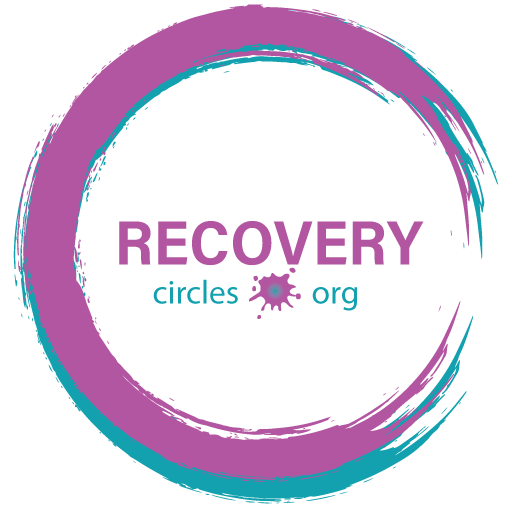PTSD Treatment & Therapy
Looking for PTSD treatment options? Reach out to us or keep reading to explore how Sober House Philadelphia can support you with compassionate, effective PTSD care.
You can also call us at (267) 412-3258
Featured In





“
I finally feel like I have a future. These people believed in me when I couldn’t.
– John L.
“
What I found here wasn’t just recovery housing in Philadelphia, it was a group of people who truly cared if I succeeded. They held me accountable and helped me rebuild.
– Tony F.
“
As a single mom, I needed a place I could trust. This affordable sober home in Philadelphia gave me that and more. I’m forever grateful.
– Jasmine T.
See more of our success stories
Stress is a normal part of life but when someone experiences a traumatic event like a natural disaster, serious injury, or sexual assault, that stress can become overwhelming. These experiences can lead to a more serious condition known as post-traumatic stress disorder (PTSD).
Approximately 7–8% of people in the U.S. will experience PTSD at some point in their lives, with women being affected at nearly twice the rate of men. While PTSD is often associated with combat veterans, it can affect anyone regardless of age, background, or life circumstances.
That’s why at Sober House Philadelphia, we emphasize the importance of compassionate support and consistent emotional care for anyone living with trauma or PTSD. Everyone deserves a safe space to heal, and we’re here to help guide that journey.
You can also call us at (267) 412-3258
What is PTSD Therapy?
PTSD therapy is a vital step toward helping individuals reclaim their lives. It provides relief from emotional pain by offering a safe, structured way to process trauma through personalized treatment plans and evidence-based approaches often supported by medical guidance approved by local health authorities.
By working closely with mental health professionals and trusted partners, individuals are better equipped to stay committed to their healing journey and receive the consistent, high-quality care they deserve.
Psychiatrists
Trauma treatment professionals typically work within specialized facilities where they conduct thorough assessments before beginning therapy. Drawing on their expertise, they determine the most appropriate PTSD treatment approach whether it’s individual therapy, group support, or alternative therapeutic methods to ensure each patient receives the care that best suits their needs.
It’s important to note that while these professionals are trained to guide the therapeutic process, they may not be authorized to prescribe medication in certain jurisdictions. In such cases, they collaborate with licensed medical providers to ensure comprehensive and coordinated care.
Social Workers In The Healthcare Setting
Social work plays a vital role in supporting an individual’s overall well-being during PTSD treatment. Social workers help ensure that individuals stay connected to essential resources, maintain healthy relationships with loved ones, and avoid significant stress or neglect. Their support creates a stable foundation, allowing patients to focus more fully on their healing journey.
Does Sober Recovery Community Offer Post Traumatic Stress Disorder Treatment?
Sober House Philadelphia is not a hospital or licensed mental health facility. However, we work closely with our trusted partner, The Heights Treatment, which specializes in outpatient mental health services and comprehensive trauma care.
The Heights Treatment provides a wide range of evidence-based psychological therapies, including cognitive-behavioral therapy (CBT), dialectical behavior therapy (DBT), and eye movement desensitization and reprocessing (EMDR), among others. This trusted partner also specializes in treating co-occurring disorders that may accompany PTSD, such as eating disorders, acute stress disorder, or substance use disorders.
To ensure a safe and supportive environment, The Heights Treatment is fully equipped with medical supplies, personal protective equipment (PPE), and secure storage for patient care items. The facility adheres to strict preventative health protocols and physical distancing measures, meeting the highest standards of safety in today’s healthcare landscape.
It also provides a partial hospitalization program/trauma treatment center facilities if needed or deemed necessary. An individual undergoes a strict admissions process before being deemed clinically admissible together with symptom screening protocols. Clients can rest assured that Members of our staff maintain proper distance and that proper infection prevention procedures are observed at all times.
Sober House Philadelphia offers a structured residential program for individuals in post-recovery. In this supportive environment, residents receive consistent monitoring and personalized care that addresses their daily needs including hygiene guidance, nutritious meal planning to support recovery from eating disorders, and overall wellness support.
Our program fosters a safe, nurturing space where individuals can continue healing from trauma, focusing on both emotional and spiritual growth as they rebuild their lives.

Sober Livings

Outpatient Treatments

Individualized Intensive Program

Sober Companions
How Do You Treat PTSD?
Recovering from a major traumatic event or multiple traumatic experiences takes time and often begins with a thorough clinical assessment to ensure an accurate diagnosis. In some cases, individuals may start with a free online screening that helps identify key indicators such as sleep disturbances, emotional distress, a history of domestic abuse, exposure to natural disasters, or past military service. These insights can provide a deeper understanding of how trauma and PTSD are affecting their lives.
Depending on the individual’s needs, outpatient or residential PTSD treatment may include evidence-based therapies such as cognitive processing therapy (CPT), prolonged exposure therapy (PE), eye movement desensitization and reprocessing (EMDR), or stress inoculation and control training. Each approach is designed to help individuals gradually process trauma and build the tools needed for lasting recovery.
What Are The Four Phases Of PTSD?
PTSD can affect individuals of any gender, ethnicity, or social background, and it often presents in different ways depending on the person. Typically, those experiencing PTSD may move through four distinct phases of response, with the severity and impact varying based on the nature and intensity of the trauma they’ve experienced
Impact
PTSD often begins after a person experiences a deeply distressing or life-threatening event, such as war, terrorism, assault, or other forms of armed conflict. In the immediate aftermath, individuals may feel overwhelmed by intense anxiety, hypervigilance, and even guilt. Their natural response may be to distance themselves from the situation or attempt to block out the experience entirely, as a way to regain a sense of safety and control.
Denial
When overwhelmed by intense emotions, individuals may begin to avoid confronting their traumatic experiences—either consciously or unconsciously. This avoidance is often a protective response, but it can also increase vulnerability to unhealthy coping mechanisms, such as alcohol or drug use, as a way to dull emotional pain or escape distressing memories.
Short-term Recovery
As highlighted in many CDC educational resources, individuals in this stage may appear to function normally on the surface. However, without proper support and connection, they can become increasingly disillusioned, withdrawn, and pessimistic making it difficult to manage everyday responsibilities or maintain emotional well-being. Ongoing evaluation and consistent support are essential for achieving meaningful progress in their recovery journey.
Long-term Recovery
For individuals struggling with PTSD-related anxiety, nightmares, or other symptoms, residential treatment or outpatient programs can provide structured support and therapeutic care. These programs are designed to help individuals manage their symptoms while gradually rebuilding a sense of safety and stability. As part of their recovery, they may also take proactive steps to prepare for life after treatment, developing tools and strategies to navigate daily challenges and prevent relapse.
Cities We Serve
Can PTSD Be Cured with Trauma Treatment?
Like many psychiatric conditions, PTSD does not have a definitive cure. However, with the right trauma-focused therapies, individuals can effectively manage their symptoms and regain a sense of normalcy in their lives.
In addition to traditional approaches, specialists may incorporate alternative trauma treatments to support long-term healing and recovery. These complementary therapies can help individuals process trauma more holistically and strengthen their overall well-being.
Trauma-Sensitive Yoga
Some trauma treatment approaches focus on aligning the mind and body through practices that emphasize mindfulness and spirituality. These holistic methods can play a powerful role in trauma recovery, helping individuals reconnect with themselves, reduce anxiety, and foster a deeper sense of inner peace.
Acupuncture
Acupuncture, a traditional Chinese healing practice, is sometimes used as an alternative trauma treatment. This technique involves inserting thin needles into specific points on the body to relieve physical and emotional discomfort. While not a replacement for clinical therapy, acupuncture is believed to support the management of PTSD, stress-related conditions, and co-occurring disorders by promoting relaxation, reducing anxiety, and restoring balance to the nervous system.
How Does Sober Recovery Community Help Address PTSD?
As a trusted mental health partner with our sister treatment center, The Heights Treatment, Sober House Philadelphia supports individuals recovering from PTSD by offering a structured and nurturing residential environment. While The Heights Treatment provides clinical care, we focus on helping residents heal through the integration of supportive routines, life skills development, self-care practices, and, where appropriate, spiritual exploration. Together, our programs promote holistic recovery and long-term emotional resilience.
Sober House Philadelphia works closely with professional staff and counselors to ensure individuals stay committed to their post-recovery treatment plans while actively supporting relapse prevention for sustained healing and personal growth. In collaboration with our partner, The Heights Treatment, we also offer dual diagnosis support and case management services providing comprehensive care for individuals facing behavioral health challenges or co-occurring conditions.
Here’s a more polished and compassionate version of your statement:
We also encourage on-site visitation from loved ones, recognizing the vital role that connection and community play in the healing process. These visits, along with other supportive services, help individuals coping with PTSD feel more grounded and supported as they work through trauma-related challenges in a safe and nurturing environment.
If you or someone you know has experienced trauma or a traumatic event, it’s important to consult with a qualified treatment center for a proper evaluation and diagnosis. Additionally, reaching out to your insurance provider can help you understand your coverage options and determine the next steps for potential admission into a treatment program.
Are There PTSD Treatment Centers And Therapies Near Me?
Individuals seeking trauma therapy have the potential to reclaim peace and live a more balanced, trauma-free life. Consulting with a qualified treatment center and undergoing a clinical assessment is an important first step toward healing.
While Sober House Philadelphia is not a clinical treatment center, we offer supportive sober living arrangements and spiritual guidance as part of a holistic approach to recovery. Our environment is designed to complement your existing trauma therapy and help you maintain stability and growth on your journey to wellness.
Call our recovery specialists at Sober House Philadelphia today at (267) 412-3258 or fill out our contact form to learn how joining our Philadelphia sober living community can help you reclaim your life. Whether you’re seeking clean and sober housing, structured transitional support, or simply someone to talk to — we’re here for you.
